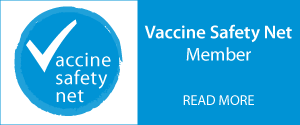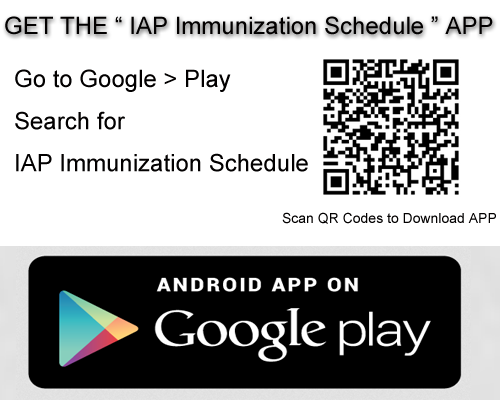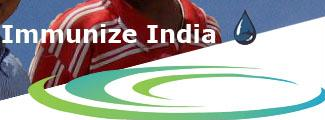Brief Description
Q. How is Japanese encephalitis transmitted?
A. By rice field breeding mosquitoes (primarily the Culex tritaeniorhynchus group) that become infected with Japanese encephalitis virus (a flavivirus antigenically related to St. Louis encephalitis virus).
Q. How do people get Japanese encephalitis?
A. By the bite of mosquitoes infected with the Japanese encephalitis virus.
Q. What is the basic transmission cycle?
A. Mosquitoes become infected by feeding on domestic pigs and wild birds infected with the Japanese encephalitis virus. Infected mosquitoes then transmit the Japanese encephalitis virus to humans and animals during the feeding process. The Japanese encephalitis virus is amplified in the blood systems of domestic pigs and wild birds.
Q. Could you get the Japanese encephalitis from another person?
A. No, Japanese encephalitis virus is NOT transmitted from person-to-person. For example, you cannot get the virus from touching or kissing a person who has the disease, or from a health care worker who has treated someone with the disease.
Q. Could you get Japanese encephalitis from animals other than domestic pigs, or from insects other than mosquitoes?
A. No. Only domestic pigs and wild birds are carriers of the Japanese encephalitis virus.
Q. What are the symptoms of Japanese encephalitis?
A. Mild infections occur without apparent symptoms other than fever with headache. More severe infection is marked by quick onset, headache, high fever, neck stiffness, stupor, disorientation, coma, tremors, occasional convulsions (especially in infants) and spastic (but rarely flaccid) paralysis.
Q. What is the incubation period for Japanese encephalitis?
A. Usually 5 to 15 days.
Q. What is the mortality rate of Japanese encephalitis?
A. Case-fatality rates range from 0.3% to 60%.
Q. How many cases of Japanese encephalitis occur in the world and the U.S.?
A. Japanese encephalitis is the leading cause of viral encephalitis in Asia with 30-50,000 cases reported annually. Fewer than 1 case/year is reported in U.S. civilians and military personnel traveling to and living in Asia. Rare outbreaks in U.S. territories in Western Pacific have occurred.
Q. How is Japanese encephalitis treated?
A. There is no specific therapy. Intensive supportive therapy is indicated.
Q. Is the disease seasonal in its occurrence?
A. Seasonality of the illness varies by country (see table).
Q. Who is at risk for getting Japanese encephalitis?
A. Residents of rural areas in endemic locations, active duty military deployed to endemic areas, and expatriates who visit rural areas. Japanese encephalitis does not usually occur in urban areas (see table).
Map: Areas where Japanese encephalitis is endemic
Figure 1. Distribution of Japanese Encephalitis in Asia, 1970-1998. (View enlarged image.)
Q. Where is Japanese encephalitis endemic?
A. See map.
Q. Where do Japanese encephalitis outbreaks occur?
A. Japanese encephalitis outbreaks are usually circumscribed and do not cover large areas. They usually do not last more than a couple of months, dying out after the majority of the pig amplifying hosts have become infected. Birds are the natural hosts for Japanese encephalitis. Epidemics occur when the virus is brought into the peridomestic environment by mosquito bridge vectors where there are pigs, which serve as amplification hosts, infecting more mosquitoes which then may infect humans. Countries which have had major epidemics in the past, but which have controlled the disease primarily by vaccination, include China, Korea, Japan, Taiwan and Thailand. Other countries that still have periodic epidemics include Viet Nam, Cambodia, Myanmar, India, Nepal, and Malaysia.
New! Q. Who should be vaccinated against Japanese encephalitis?
A. The statement of the Advisory Committee on Immunization Practices (ACIP) provides recommendations for use of JE vaccine among travelers and laboratory workers. (See: Centers for Disease Control and Prevention. Japanese Encephalitis Vaccines, Recommendations of the Advisory Committee on Immunization Practices (ACIP), Morbidity and Mortality Weekly Report, Mar 12, 2010: 59(01);1-27) The 2-page Vaccine Information Statement provides helpful information on who should be vaccinated against Japanese encephalitis virus and the benefits and risks of the vaccine.
Vaccine Information Statement [PDF - 2 Pages]
Q. Where can I get more information on Japanese encephalitis?
A. See the CDC Japanese Encephalitis Home Page (http://www.cdc.gov/ncidod/dvbid/jencephalitis) and CDC Health Information for Travelers to Southeast Asia (http://www.cdc.gov/travel/seasia.htm).
Last Updated : 10/01/2020
© Copyright 2015, All Rights Reserved by ACVIP. Powered by: ITindustries.com







